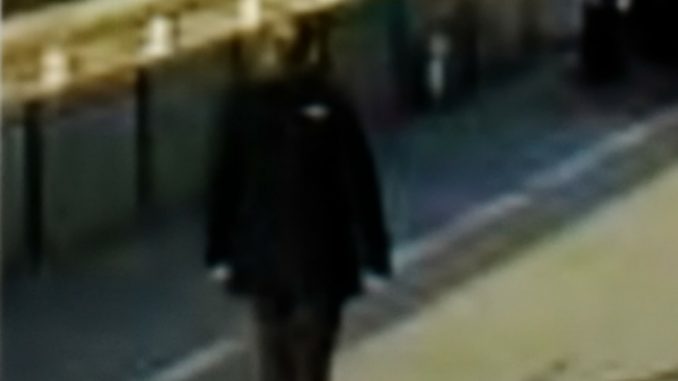
LONDON – A day after two people were killed in a terror-related stabbing attack on a bridge in central London, reports emerged of the brave actions taken by members of the public to detain the alleged assailant before he was shot dead by British police.
Scotland Yard identified the suspect as Usman Khan, 28, an extremist previously jailed for plotting to bomb the London Stock Exchange, Britain’s Parliament and the U.S. Embassy. After serving prison time for his role in that plot, Khan was released in 2018 and fitted with an electronic tag to monitor his movements, according to a report in The Times (of London). Khan was wearing a fake suicide belt when he was fatally shot Friday. Police feared it was real and that he was trying to detonate it.
The Islamic State claimed responsibility for the attack, according to SITE Intel, an extremist tracking group. While ISIS’s claim cannot be confirmed, Rita Katz, director of the U.S.-based SITE, said on Twitter that the claim demonstrates improved communications skills by the once hard-hit group to get its message out within a day of the attack.
(snip)
A woman who also died in the attack has not been named. Three others, a man and two women, remain in the hospital with serious injuries.
While Khan’s motivations remain unclear, investigators are treating the incident as terrorism and it marks the third time in the run up to the last four national votes that Britain has experienced a terrorist attack. A general election is taking place Dec. 12.
On Saturday, investigators confirmed that Khan began his assault inside Fishmongers’ Hall, a historic venue near the north end of London Bridge. There, he was registered to take part in a conference on rehabilitating former prisoners. It was organized by the University of Cambridge. Police believe that after Khan started his attack inside the hall, he proceeded to the bridge looking for more victims. They believe he acted alone.
However, according to footage that has circulated on social media, some of which has subsequently been confirmed in statements from police and witnesses, at some point when Khan got to London Bridge he was tackled by passers-by.
“This man was walking behind us on the other side of London Bridge when the attack began,” a Twitter user identified as George Roberts wrote on the social media platform.
“He ran through traffic and jumped the central partition to tackle the attacker with several others. We ran away but looks like he disarmed him. Amazing bravery.”
Stevie Hurst, a tour guide, was one of the people who helped restrain the attacker.
“Everyone was just on top of him trying to bundle him to the ground,” he told the BBC.
“We saw the knife was still in his hand. I just put a foot in to try to kick him in the head. We were trying to do as much as we could to try and dislodge the knife from his hand so he wouldn’t harm anyone else. The guys that were there (are) heroes beyond belief.”
The interventions from pedestrians prompted praise from police.
“(I) want to thank the members of the public who have helped, either by showing extraordinary courage by stepping in or by following the instructions they’ve been given by officers at the scene and in the area. This support from our public assists us more than you could know,” said Metropolitan police commissioner, Cressida Dick.
Dick said the attack, from start to finish, lasted five minutes.
Video footage captured by bystanders appears to show a person – Khan, dressed in black – lying on the ground and wrestling with several members of the public. As British police arrive, Khan attempts to rise and officers pull the members of the public away before firing two shots. Several British media reports said that one man had taken a five-foot long narwhal tusk from Fishmongers’ Hall to confront the attacker. Another, reports said, used foam from a fire-extinguisher to keep the suspect at bay. After the police fire on Khan he is later seen lying motionless, an electronic tag visible on his ankle.
London’s Mayor Sadiq Khan praised the “breathtaking heroism of members of the public who literally ran towards danger not knowing what confronted him.”
Police on Saturday searched an apartment block in Stafford, about 150 miles northwest of London, for clues. Khan was believed to have lived in the area after his release from prison. Britain’s Parole Board said in a statement it had no role in releasing Khan, who “appears to have been released automatically on license (as required by law).”
Security officials earlier this month had downgraded Britain’s terrorism threat level from “severe” to “substantial,” which means an attack is seen as “likely” rather than “highly likely.” The assessment was made by the Joint Terrorism Analysis Centre, an independent expert body that evaluates intelligence, terrorist capability and intentions.
It was based in part on a judgment that the threat of extremists returning from Syria to launch attacks in Britain had been slightly reduced.
British politician Jo Cox was murdered by a far-right terrorist a week before Britain held its 2016 Brexit referendum on European Union membership. The last general election, in 2017, was conducted in the wake of a car-ramming and stabbing terrorist attack in London that killed 11 people. Britain’s main political parties suspended campaigning in London for the vote due in less than two weeks as a mark of respect for those killed and injured in Friday’s attack.
*see full story by USA Today